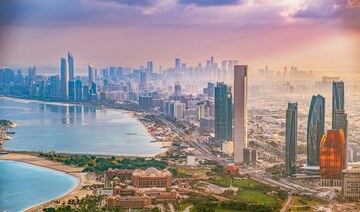In a positive sign for the global economy, non-oil business activity has surged in the UAE and other GCC countries, with the Emirates’ Purchasing Managers’ Index (PMI) reaching a nine-month high of 55.4 in December.
Strong Demand Conditions Drive Growth in Non-Oil Sector
According to S&P Global, the robust expansion was driven by strong demand conditions, underscoring continued growth in the non-oil private sector. The report noted that buoyant market conditions helped non-oil business owners secure new clients and larger order books.
UAE’s Diversification Strategy Yields Positive Results
The performance aligns with the UAE’s broader diversification strategy under its Vision 2031, which focuses on expanding the non-oil sector and promoting industries such as manufacturing, tourism, and technology to ensure sustainable economic growth. David Owen, senior economist at S&P Global Market Intelligence, said: "The UAE saw its best expansion in non-oil business conditions for nine months in December, with the latest PMI data closing out another year of continuous growth and putting the sector in a strong position for 2025."
Dubai’s PMI Also Hits Nine-Month High
Dubai’s PMI also reached a nine-month high of 55.5 in December, up from 53.9 in the previous month. The emirate saw faster expansions in output and new orders, reflecting stronger client demand and busy market conditions.
Optimism Among Non-Oil Firms Ticks Down
However, optimism among non-oil firms about future growth ticked down for the second consecutive month. Only 6 percent of surveyed companies anticipated output growth in 2025.
Saudi Arabia’s PMI Hits New High
The UAE’s performance highlights the success of economic diversification strategies across Gulf Cooperation Council nations, which continue to reduce reliance on oil revenues. The region’s positive trend extended to Saudi Arabia, where the December PMI hit 58.4, driven by a sharp increase in new orders.
Egypt’s PMI Falls Below 50
In contrast, Egypt’s PMI dropped to 48.1 in December from 49.2 in November, signaling a sharper contraction in private sector activity. Subdued client demand led to the steepest decline in output in eight months, particularly in the construction, wholesale, and retail sectors.
Kuwait’s Non-Oil Sector Continues Growth Momentum
Another report by S&P Global said Kuwait’s PMI stood at 54.1 in December, marginally down from 55.9 in November but still above the neutral 50 mark. Companies operating in Kuwait’s non-energy sector posted a further rapid increase in new orders in December.
Companies in Kuwait Anticipate Better Economic Conditions
Survey participants expressed strong optimism for business conditions for the next year, driven by expected improvements in economic conditions. Andrew Harker, economics director at S&P Global Market Intelligence, said: "Kuwait’s private sector backed up November’s strong performance with further rapid growth in the final month of 2024."
Challenges Ahead
However, there are challenges ahead for non-oil business owners in the UAE and other GCC countries. Rising costs and margin pressures discouraged firms from ramping up staffing levels despite growing workloads. Input costs increased during December, although inflation eased to its softest pace since March.
Conclusion
The surge in non-oil business activity in the UAE and other GCC countries is a positive sign for the global economy. However, there are challenges ahead that need to be addressed, including rising costs and margin pressures. Non-oil business owners will need to navigate these challenges in order to take advantage of the growth opportunities on offer.
Key Statistics
- Emirates’ Purchasing Managers’ Index (PMI) reaches a nine-month high of 55.4 in December.
- Dubai’s PMI also hits a nine-month high of 55.5 in December.
- Saudi Arabia’s PMI hits a new high of 58.4 in December, driven by a sharp increase in new orders.
- Egypt’s PMI falls below 50, signaling a sharper contraction in private sector activity.
- Companies operating in Kuwait’s non-energy sector post a further rapid increase in new orders in December.
Recommendations
Non-oil business owners should be aware of the challenges ahead and take steps to address them. This includes:
- Investing in productivity-enhancing technologies
- Diversifying revenue streams
- Managing cash flow effectively
By taking these steps, non-oil businesses can position themselves for success in a rapidly changing economic landscape.




